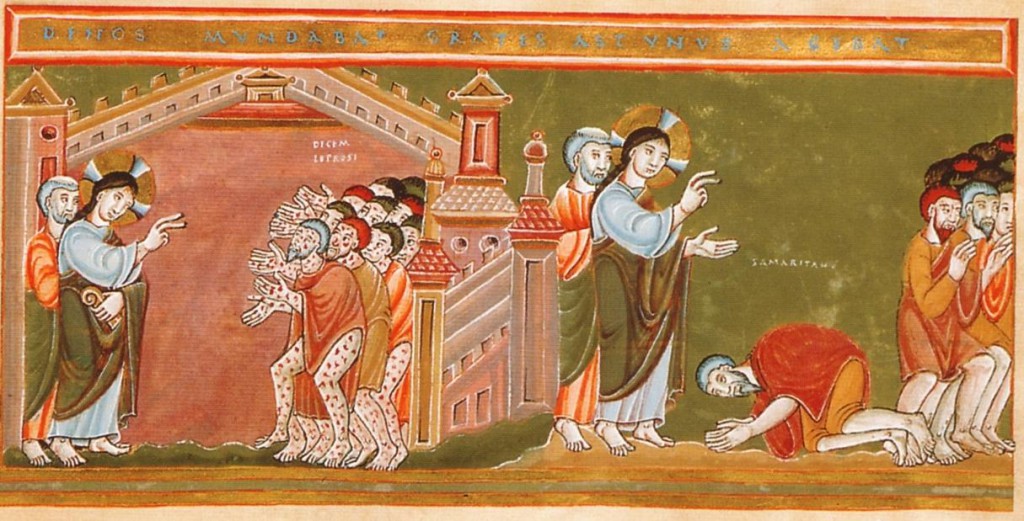 Scott Samuelson teaches philosophy at Kirkwood Community College in Iowa. I’ve long known him as a friend, but with the publication of his new book I’m delighted to discover that he is also a wonderful writer. I’m working my way through his The Deepest Human Life: An Introduction to Philosophy for Everyone
Scott Samuelson teaches philosophy at Kirkwood Community College in Iowa. I’ve long known him as a friend, but with the publication of his new book I’m delighted to discover that he is also a wonderful writer. I’m working my way through his The Deepest Human Life: An Introduction to Philosophy for Everyone, and will eventually blog about it. But in the meantime I want to give you an excerpt from a speech Scott gave recently at Grinnell College. In it he gives an example of what philosophy can mean in the life of a student. It’s also one of the best descriptions that I’ve read of the power of philosophy to make us question our assumptions and dig deeper into the meaning of our lives:
Towards the end of the 5th century B.C., Chaerophon went to the Temple at Delphi to ask the Oracle if his friend Socrates was the wisest of all people. The answer came back, “No one is wiser.” When Socrates got wind of the god’s pronouncement, he was puzzled. How could he be the wisest when he’s completely devoid of wisdom? He set out to prove Apollo and his priestess wrong. His strategy was simple: find one person with even a little bit of positive wisdom, which would clearly beat him whose wisdom level was at zero. As the story goes, Socrates wandered around Athens questioning its citizens—politicians, poets, craftsmen—about the special truths they claimed to possess and eventually came to the conclusion that the god had spoken the truth. Socrates really was the wisest of all. He did have a little bit of positive wisdom: he knew that he knew nothing.
Like all good parables, this story generates deep puzzles. How can it be that experts don’t know about their respective crafts? Is Socrates’s questioning a blessing or a curse to his fellow citizens? What good, if any, is philosophy to a world that seems to hum along fine without it?
It took a student of mine who had never read Plato to bring home the real meaning of this parable—and remind me of the liberating power of the humanities.
Her name was Jillian Kramer, a nurse’s aide at the University of Iowa Hospitals and Clinics, and she was in Biomedical Ethics, a night class filled mostly with nursing students, lab techs, and a few souls with distant dreams of being doctors. One of our most lively discussions was sparked when I casually asked the drooping class, “What’s a hospital for, anyway?” I challenged the expected answers as they came out. To fix people. But what about those who have a terminal case? To ease people’s pain. But what about those whose pain can’t be eased? To help people whose pain can be eased. What about those who don’t want their pain eased? To help sick people who want to be helped. Is there no obligation to healthy people? Though Jillian was bright, serious, and open-minded, academic philosophy wasn’t her thing. But our discussion sparked something in her, and she asked me if she could write on the purpose of hospitals.
A couple of weeks later, as students were handing in their papers and filing out, I pulled her aside and asked how the project had gone. Our conversation in class, she explained, had perplexed her; at first she thought my question silly, but after the discussion, she realized that she didn’t have a very clear idea of the overarching point of a hospital, which struck her as exceedingly weird. To help her formulate a thesis, she lit on the idea of asking everyone and anyone at the hospital about the institution’s true purpose: doctors, nurses, patients, administrators. What she found perplexed her. When they could come up with an answer at all, they gave the same pat responses as the students in class, which she was able to prove inadequate. The best answer, she said, was given by some doctor, who, after having his first couple attempts shot down by a nurse’s aide, said, “Maybe we’re supposed to do all of the above.” But she soon figured out that that too was inadequate. How are they to know when to cure, when to ease pain, when to help patients transition back to normalcy? Should they always give patients what they want? Should they always give them what they need? How do you know when to do one rather than the other? What should govern the variety of services that they provided? Why were they there?
The problem, Jillian argued to me, is that the hospital can subordinate its whole purpose to mending broken people. Too often pregnant women are treated like they’re sick, mourners are dealt with like they’re psychological cases, folks clearly dying are pointlessly “fixed.” If the hospital is merely a mechanical body shop, then we live in a less than fully human world. “Imagine,” she said, “doctors who’d spent decades studying and practicing medicine, who had never much thought of why they were really doing it!” Imagine, I thought, poets, politicians, craftsmen, and citizens generally not understanding the ultimate point of their respective endeavors.
Many of her co-workers, she figured, did good jobs—just going on their feel for what they ought to be doing. (After Socrates discovers that the poets can’t explain their poems, he concludes, “I decided that it was not wisdom that enabled them to write their poetry, but a kind of instinct or inspiration.”) But she wondered if they wouldn’t be better off opening their minds to the full truth of it. (“If,” Socrates famously says, “I tell you that to let no day pass without discussing goodness and all the other subjects about which you hear me talking and examining both myself and others is really the very best thing that a man can do, and that life without this sort of examination is not worth living, you will be even less inclined to believe me.”) She had to get going and handed her paper to a rapt professor.
I sat down and read her essay then and there. She wrote of how Stanley Hauerwas, a theologian I had assigned, helped her to see the problem more clearly. People who are sick grow alienated from those around them: their pain exiles them from the human community. The closest she could come to formulating the goal of a hospital was: to be there for people. To be there when they’re sick. To be there when they’re dying. To be there for the families who just lost loved ones. To aid people when you could, and when they wanted. But most of all to be there for them, human to human. To be there especially when they’re suffering and to help them, as far as possible, to transition from the lonely realms of pain to the regular world again. The point of medicine is care. Doctors are there, she marvelously concluded, to help the nurses. But doctors, she feared, overrate their wisdom based on how much they know about science. (Socrates on the craftsmen: “On the strength of their technical proficiency they claimed a perfect understanding of every other subject, however important; and I felt that this error eclipsed their positive wisdom.”)
Jillian admitted at the end that she didn’t feel complete confidence in her conclusions: they were simply the best way she had of putting what she had discovered deep-down. She concluded by saying that her inquiry had opened her to the significance of what she was training to do. She was more inclined to value the work she’d always intuitively known was valuable. Had she read Plato’s Phaedo, she might have called her conclusions about the hospital “beliefs worth risking.”











